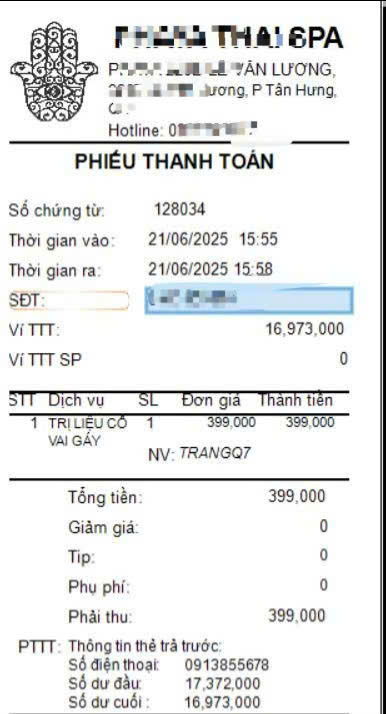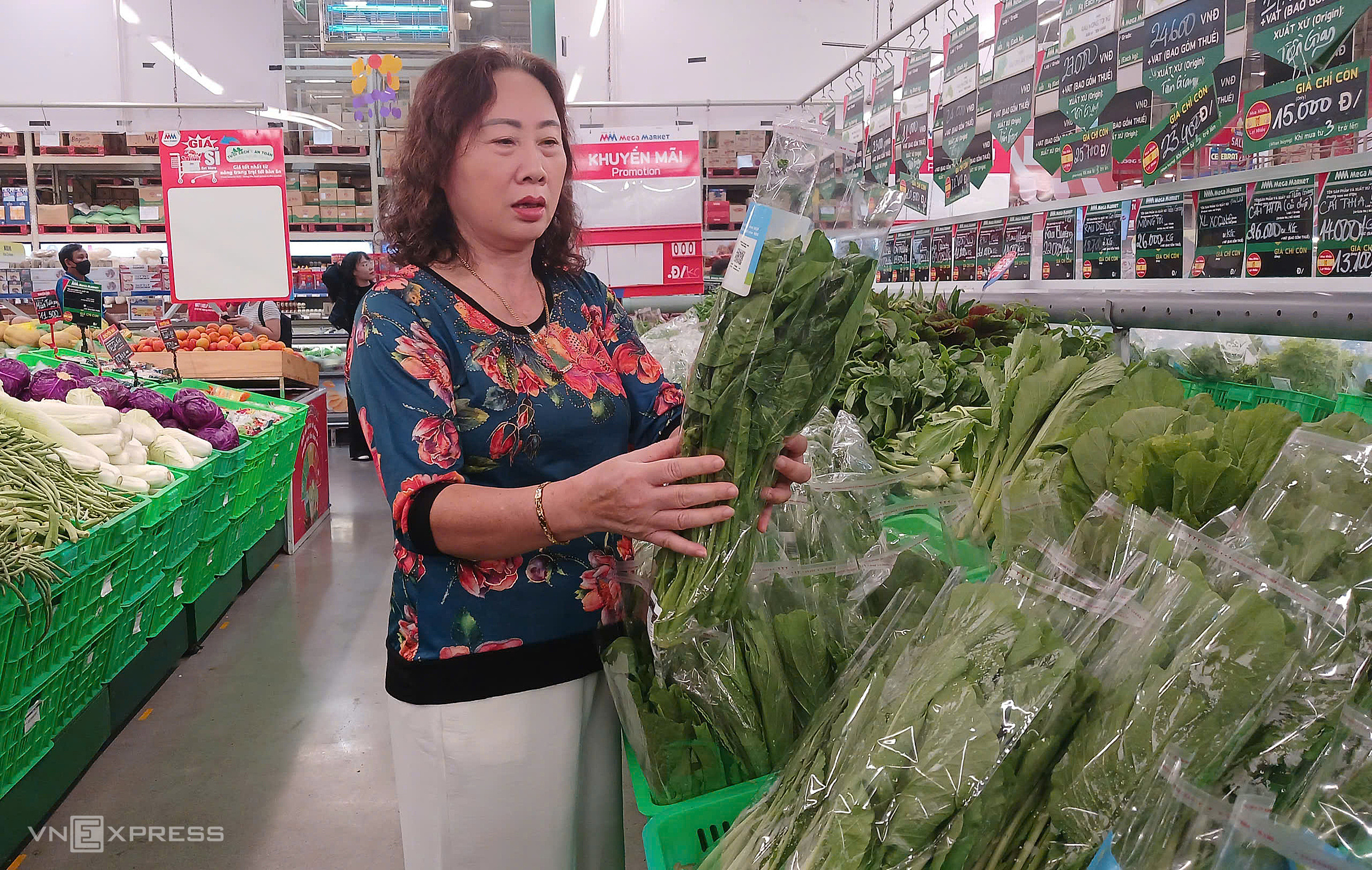In early August, Nguyen Thi Hanh, a resident of Phan Dang Luu Street in Duc Nhuan ward, sighed as she reviewed her household bills. Hanh explained that her family of 5 faced a nearly 4 million VND electricity bill in July, approximately 1 million VND higher than the same period last year, despite efforts to limit air conditioner usage. Combined with summer school fees for her two children, the family's expenses increased by nearly 5 million VND.
"It feels like the more I try to save, the more expenses increase," Hanh shared.
Hanh's situation is not unique. Mai, an employee at a media company in Saigon ward, said that despite cutting back on dining out and focusing on discounted items, her monthly household bills still reached 20 million VND, several million VND more than the previous year.
Mai calculated that the price of her usual fragrant rice has risen from 15,000 VND per kg to between 19,000 and 25,000 VND. Her income has remained unchanged for three years, but her savings have been halved. "If any unexpected medical expenses or emergencies arise, I won't have anything left to save," Mai worried.
Similar concerns are emerging across many households. Over the past 6 months, average retail electricity prices have been adjusted twice, currently standing at 2,050 VND per kWh, a 4.5% increase compared to the end of last year. Water prices in Ho Chi Minh City have also risen by 400-600 VND per m3 since the beginning of the year.
 |
A customer's spa bill before and after the application of VAT. Photo: Provided by the individual.
Higher-income households are not immune to these rising prices. Minh, a public relations director for a food company in Phu Thuan ward, saw her family's average monthly expenses jump from 81 million VND to 116 million VND. "My three children's school fees increased by 10%, utility bills and food costs are up despite reduced consumption, and even spa treatments are more expensive due to the 8% VAT," she said.
The rising costs are also impacting vendors in traditional markets and food stalls. Hang, a fish vendor at Xom Moi market in An Hoi Dong ward, reported having to halve her stock due to a 20-30% increase in seafood prices since the beginning of the year, while customer traffic continues to dwindle.
Sau, who has been selling bun bo hue (beef noodle soup) in An Hoi Tay ward for over two decades, said her July electricity bill reached 2.5 million VND, a 40% increase compared to previous months. Coupled with the rising costs of beef and vegetables, she was forced to raise the price of a bowl of bun bo hue from 45,000 VND to 50,000 VND, which has led to fewer customers.
Amidst these rising prices, many businesses are resorting to frequent promotions to stimulate demand. Vietnam Livestock Corporation (Vissan) is running "buy 1 get 1 free" and "buy 2 get 1 free" promotions. "We are reviewing every utility expense, even adjusting air conditioning schedules to save costs and find ways to lower prices," said Phan Van Dung, Vissan's Deputy General Director.
 |
Customers shopping at a supermarket in Ho Chi Minh City. Photo: Thi Ha
According to the General Statistics Office, the consumer price index in July rose 3.19% year-on-year, with an average increase of 3.26% over the first seven months. Food, dining out, electricity, and water were the main contributing factors.
A personal finance expert in Ho Chi Minh City, speaking to VnExpress, noted that the pressure on household spending also stems from increased fuel and transportation costs, impacting the entire supply chain. "From healthcare to education, prices are rising, creating a cost spiral with no signs of abating," he said.
The expert recommends that households create more realistic spending plans, prioritize essential expenses, limit consumer debt, and take advantage of promotions and domestic goods to save money. However, he acknowledged that individual solutions can only offer limited relief, as the root cause lies in stabilizing the prices of essential goods like electricity, fuel, and food.
With households, vendors, and businesses alike struggling to cope with rising costs, the expert believes the government needs to implement timely measures to curb inflation. This would not only alleviate the current burden but also prevent a rapid decline in consumer purchasing power.
On 28/7, Prime Minister Pham Minh Chinh chaired a meeting to discuss solutions for controlling inflation, stabilizing the macroeconomy, and promoting recovery. The meeting took place against the backdrop of significant interest rate hikes by the US Federal Reserve and other central banks, escalating global inflation, fluctuating supply chains, and rising fuel and input material prices.
The Prime Minister emphasized the key task of maintaining macroeconomic stability, controlling prices, and ensuring major balances. He also called for measures to reduce the cost of goods and services to alleviate inflationary pressures, prevent recession, and support growth.
Data from the General Statistics Office shows that GDP grew by 7.52% in the first 6 months of the year, the highest rate for the same period between 2011 and 2025.
Thi Ha












